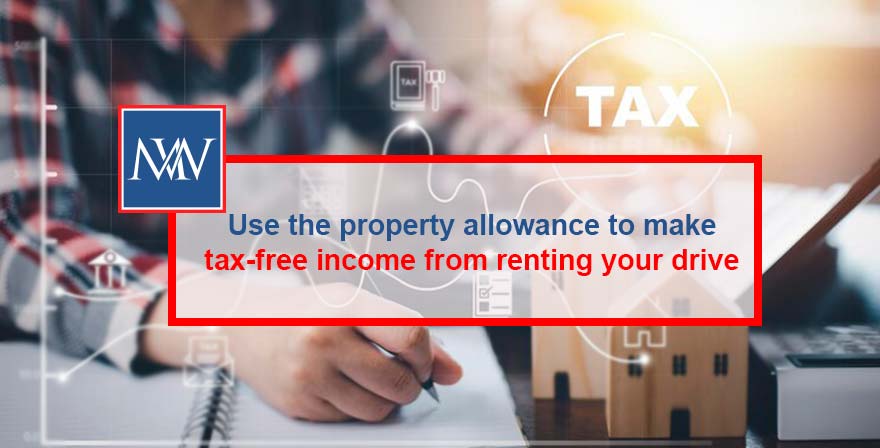In the summer, there are a lot of events, and parking is often hard to find. If you have a driveway or field that you don’t use, you could rent it out to make some money. This doesn’t have to be a tax problem.
But it’s important to remember that all of the money made from renting out UK property owned by the same person or people makes up a single UK property business. So, if a person has other rental properties, the money from renting out a driveway can’t be looked at by itself; it has to be added to the income from the other properties.
Nature of the property allowance
The property allowance is a tax-free allowance of £1,000. This means that a person can earn up to £1000 tax-free income from property each year.
If the income from a property is less than £1,000, there’s no need to tell HMRC or include it on the self-assessment tax return.
Example
In Wimbledon, Peter lives. He has room for his own car and two other cars on his drive. During the two weeks of Wimbledon, he rents each space out for £30 per day. During Wimbledon 2022, he rents out his car and makes £720.
He has no other property income.
Since the income from the property is less than £1,000, he doesn’t have to pay taxes on it and doesn’t have to tell HMRC about it.
Income exceeds £1,000
Even if a person makes more than £1,000 from their property during the tax year, they can still use the £1,000 property allowance. You can take the allowance out of the income to get the taxable profit. This will help if your actual costs are less than £1,000.
Example
Petra lives near a popular outdoor concert venue. She rents out a parking spot on her driveway in July and August. In 2022, she’ll make £1,500 from this. She spends £200 on advertising the space and other costs related to running it.
She doesn’t get money from anything else.
Since her income is more than £1,000, she has to tell HMRC. But she can use the property allowance to cut down on the tax she has to pay on that income.
If Petra doesn’t claim the property allowance, her taxable profit will be £1,300 ($1,500 in rental income minus £200 in expenses). But by claiming the allowance, she can bring her taxable profit down to £500 (£1,000 in rental income minus £1,000 in property allowance). If she claims the allowance, she will save £160 in tax if she pays at the basic rate and £320 if she pays at the higher rate.
Expenses of more than £1,000
If the costs of keeping the property are more than £1,000, claiming the property allowance won’t help. When this is the case, it is better to deduct the actual costs.
Example
Paul has a field where he lets people park for events. In July 2022, he gets £8,000 from renting out his house. Staff and administrative costs cost him another £1,200.
If he figures out his rental income the way it’s usually done, his taxable income is £6,800 (£8,000 minus £1,200). If he gets the property allowance, though, his rental income goes up to £7,000 (£8,000 minus £1,000). It is not worth it to claim the property allowance.
Losses
It is also better not to claim the allowance if taking expenses out of rental income would result in a loss, so that the loss can be kept. Taking away the allowance can’t cause a loss. But this will require some work to set up and fill out the tax return. So, if the rental income is less than £1,000 and there aren’t many ways to use the loss, it may be best to claim the property allowance.

